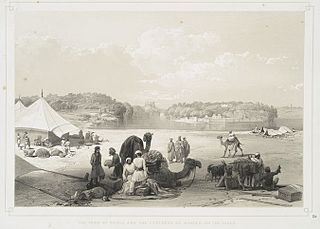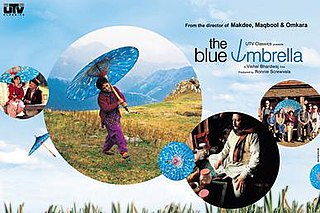
Khatri is a caste/clan of the Indian subcontinent that is predominantly found in India, but also in Pakistan and Afghanistan. In the subcontinent, they were mostly engaged in mercantilistic professions such as banking and trade. They were the dominant commercial and financial administration class of Late-Medieval India, some in Punjab often belonged to hereditary agriculturalist land-holding lineages, while others were engaged in artisanal occupations such as silk production and weaving and some were scribes learned in Sanskrit or Persian.
The Muzaffarid dynasty, sometimes referred as Ahmedabad dynasty, were Sultans of Gujarat in western India from 1391 to 1583. The founder of the dynasty was Zafar Khan who was governor of Gujarat under the suzerainty of the Tughlaq dynasty of the Delhi Sultanate. When the Sultanate was weakened by the sacking of Delhi by Timur in 1398, and Zafar Khan took the opportunity to establish himself as sultan of an independent Gujarat. His son, Ahmed Shah I established the capital at Ahmedabad. The dynasty ruled for almost 200 years, until the conquest of Gujarat by the Mughal Empire in 1572. The sultanate reached its peak of expansion under Mahmud Begada, reaching east into Malwa and west to the Gulf of Kutch.
Kohli is a Khatri clan from Punjab.

Arora is a community of Punjab, comprising both Hindus and Sikhs. The name is derived from their native place Aror. In 712, the Arora people left Aror and started to settle in the cities of Punjab.
Duggal is a Punjabi Khatri surname.
Sabharwal is a Khatri caste surname originating among Hindu Khatris and Sikhs of the Punjab region in India.
Sethi is a surname that is found among the Punjabi Khatris of India. They are a part of Khukhrain sub-caste among the Khatris which also includes the clans of Anand, Bhasin Chadha, Kohli, Ghai, Sahni, Sethi, (Sawhney) and Suri. The surname is also found among Arora which is another sub-caste of Khatris. Historian Kamal Shankar Srivastava writes that all Khukrains including Sethis were originally found near the banks of Indus and Jhelum river especially in the towns of Pind Dadan Khan, Peshawar and Nowshera.

The Blue Umbrella is a 2005 Indian drama film based on the novel The Blue Umbrella (1980) by Ruskin Bond. It was directed by Vishal Bhardwaj and starred Shreya Sharma and Pankaj Kapur in lead roles. The music was by Bhardwaj and lyrics were penned by Gulzar.

Roghan painting is an art of cloth printing practiced in Gujarat, Peshawar and Sindh. In this craft, paint made from boiled castor oil or linseed oil and vegetable dyes is laid down on fabric using a stylus.
Shri Krishna, also known as Krishna is an Indian Hindi-language television mythological series, created, written and directed by Ramanand Sagar. It is an adaptation of the stories of the life of Krishna, based on Bhagavata Purana, Brahma Vaivarta Purana, Harivamsa, Vishnu Purana, Padma Purana, Garga Samhita, Bhagavad Gita and Mahabharata.
Raji is a small Sino-Tibetan language of Nepal and Uttarakhand, India. Speakers were until recently nomadic.
Matka gambling or satta is a form of betting and lottery which originally involved betting on the opening and closing rates of cotton transmitted from the New York Cotton Exchange to the Bombay Cotton Exchange. It originates from before the Partition of India when it was known as Ankada Jugar. In the 1960s, the system was replaced with other ways of generating random numbers, including pulling slips from a large earthenware pot known as a matka, or dealing with playing cards.

Gulshan Rai Khatri was an Indian medical doctor and public health specialist, known for his efforts in curbing the disease of tuberculosis worldwide. He was honoured by the Government of India, in 2013, by bestowing on him the Padma Shri, the fourth highest civilian award, for his contributions to the fields of medicine and medical education. In 2018, he was diagnosed with multiple myeloma, a form of blood cancer and after a long array of health problems, he succumbed to a heart and lung seizure on July 16, 2020.

Oman competed at the 2016 Summer Olympics in Rio de Janeiro, Brazil, when the event was held from 5 to 21 August 2016. This was the nation's ninth consecutive appearance at the Summer Olympics. Four Omani athletes, two men and two women, were selected to compete in athletics and shooting at the Games. Among them were sprinter Barakat Al-Harthi, the lone returning Olympian from the previous Games.

Guru (transl. Mentor) is a 2017 Indian Telugu-language sports drama film written and directed by Sudha Kongara and produced by S. Shashikanth on YNOT Studios banner. The film stars Venkatesh and Ritika Singh with the music composed by Santhosh Narayanan. The film is remake of Kongara's own film Irudhi Suttru / Saala Khadoos (2016).

Abdul Gafur Khatri Master is a Rogan artist from Nirona village in Kutch district, Gujarat, India.
K.C is a surname anglicized as an abbreviation of Khatri Chhetri. The surname Khatri Chhetri was historically legally labelled to the children of Brahmin fathers and Kshatriya (Chhetri) mothers after the introduction of Muluki Ain in 1854 by Jang Bahadur Rana of Nepal. With its origin in the 12th century CE, the archaic form of the surname "Khatri" was ascribed as a local endonym for the progeny of Brahmins from Medieval India and Khas women of the Middle Himalayas in medieval western Nepal.

Bir Charitra is a Nepali fantasy novel written by Girish Ballabh Joshi. The first part of the novel was written in c. 1899 and was published in 1903 by Pashupat Press but soon the Rana government restricted the publication of other volumes. The complete all four parts of the novel was published only in 1965 by Jagadamba Press. It is considered to be the first novel of Nepali literature.
Trehan is a Punjabi Khatri surname. Before the partition of India, they were found near Mongowal town in Gujrat district of West Punjab. Trehan Khatris of Mangowal are described as "full of endurance, bodily strong and full of conviction" in Sikh texts. Many Trehans were settled in Batala as well. 2nd Guru of Sikhism, the successor of Guru Nanak was Guru Angad, a Trehan Khatri.







